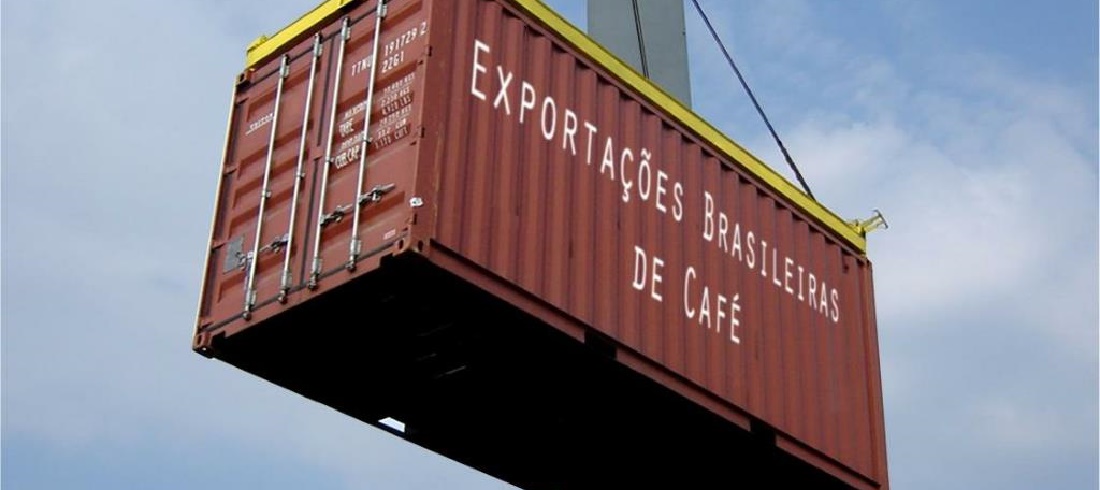
Brazil’s coffee exports see almost 50% increase in February
Mar, 12, 2024 Posted by Gabriel MalheirosWeek 202411
Brazil’s coffee exports totaled 3.626 million 60-kilo bags in February 2024, marking a 48.9% increase compared to the 2.435 million bags traded in the same month last year. In terms of foreign exchange revenue, the increase was 47.2% in the same comparative period, with earnings jumping from US$ 514.3 million to the current US$ 757.3 million. These figures were disclosed on Monday, March 11th, in a bulletin from the Brazilian Coffee Exporters Council (Cecafé).
With February’s performance, exports in the first eight months of the 2023/24 harvest reached 30.689 million bags, generating a revenue of US$ 6.069 billion. These numbers represent advances of 24.3% in volume and 6.1% in revenue.
In the first two months of 2024, shipments of all varieties of Brazilian coffee abroad increased by 44.9%, totaling 7.654 million bags. The revenue amounted to US$ 1.574 billion, a 39.3% increase compared to the first two months of 2023.
The association highlights the increase in exports despite some logistical hurdles.
Despite the bottlenecks, the Port of Santos remains the main exporter of Brazilian coffee, with the shipment of 5.558 million bags in the first two months, representing 72.6% of the total.
In the second position is the maritime complex of Rio de Janeiro, accounting for 24.4% of exports, with the shipment of 1.869 million bags abroad, followed by the Port of Paranaguá (PR), with 103,486 bags and a share of 1.4%.
The following chart displays the export volume of Brazilian coffee (hs 0901) between January 2022 and January 2024, according to data from Datamar’s pioneer maritime intelligence service DataLiner.
Brazilian Coffee Exports | Jan 2022 – Jan 2024 | WTMT
Source: DataLiner (click here to request a demo)
Destinations
In the first two months of 2024, the United States was the highest-ranked destination for Brazilian coffee, importing 1.368 million bags, a 37.2% increase compared to the first two months of 2023, equivalent to 17.9% of total exports.
Germany, with a 16.2% share, purchased 1.241 million bags (+57.5%) and ranked second on this list. Then comes Belgium, with the purchase of 692,281 bags (+118.5%); Italy, with 485,627 bags (+21.7%); and Japan, with 464,133 bags (+87.2%).
China ranks sixth, already consolidated as one of the main partners for Brazilian coffee. In January and February, the country imported 256,931 bags, increasing the volume it acquired in the first two months of 2023 by 158.5%.
Rounding out the top ten destinations are the Netherlands (Holland), with 239,648 bags (+43.3%); Mexico, with 225,081 bags (+722.2%); the United Kingdom, with 188,297 bags (+37.6%); and Turkey, with 184,131 bags (+28%).
Varieties
Brazil’s exports of conilon coffee remain strong, reaching another historic mark in February. According to Cecafé’s report, the country shipped 570.6 thousand bags of the product last month, surpassing the 87.5 thousand bags traded in the same period last year.
“We had the best February in history for conilon and robusta exports, which also resulted in a record for canephora shipments in the first two months,” emphasizes Cecafé’s president, Márcio Ferreira.
According to him, the performance reflects the attractiveness of these Brazilian coffees in the international market, a scenario observed since last year. “Brazil’s conilon and robusta coffees are priced more competitively than competitors’, and we have product availability, which has been filling the gaps left by crop failures in Vietnam and Indonesia, the first and third largest producers of the variety,” he explains.
Regarding Arabica coffee shipments, exports totaled 2.805 million bags in February, compared to 2.056 million bags in the same period of 2023.
As for soluble coffee exports, Brazil shipped 246,983 bags, down from 287,968 bags last year.
Conflicts
Regarding the geopolitical conflicts impacting ship traffic in the Red Sea, Cecafé’s leader comments that Brazilian coffee exports have not yet been effectively affected, and the group continues to monitor the situation with its members.
“For now, we have not received notifications of the impact on our coffee shipments, as the performance has been positive in the first two months. However, the global scenario is very concerning, and we need to remain vigilant, as freight prices are rising, as well as congestion and delays in port vessels,” he concludes.
-
Jan, 22, 2025
0
Second Half of 2024 Shows Improvement for São Paulo’s Industry, Says Fiesp
-
Meat
Jul, 10, 2019
0
EU-Mercosur deal favors Brazil’s meat exports
-
Oil and Gas
Jan, 08, 2019
0
Petrobras’ oilfield receives bids from PetroRio and Karoon Energy
-
Ports and Terminals
Jan, 30, 2023
0
Port of Itajai to offer new container service in February



